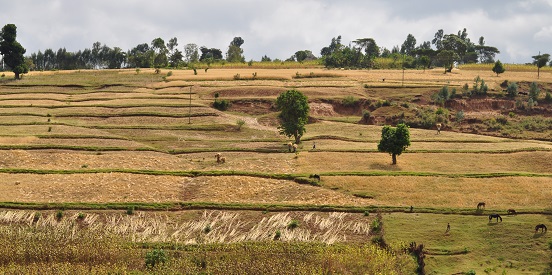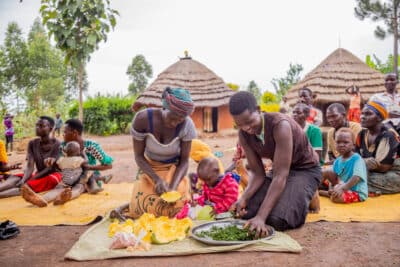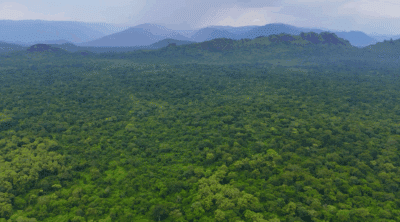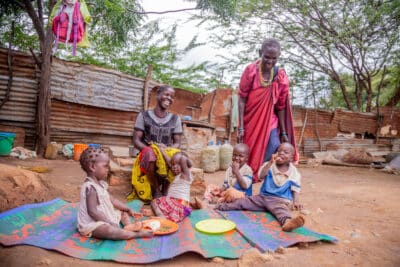News
3 February 2017
Bringing maize back to farms in Bale

For the first time in four years Mr Aliyie, chairman of a Rangeland Management Co-operative from the Melkeamana community in Ethiopia’s Bale Eco-region, has brought in a bumper harvest: a fantastic 2,500 kg of maize. With the profits he has made, he has been able to support his wife’s small trading business and he can continue to send his three children to school: something that, as an educated man himself, he knows is important for their future.
Mr Aliyie, like many other local farmers, had given up on planting maize for the last three years. High temperatures and the erratic and uneven distribution of rainfall had meant that the maize crop was drying out in the first stages of growth. As maize was one of the staples in the local diet, it was a food that was sorely missed.

Mr Aliyie’s re-introduction of maize was made possible by Farm Africa’s SHARE BER project (Supporting Horn of African Resilience in Bale Eco-Region), funded by the EU. He is now using drought-tolerant maize seeds, which means the maize crop is less prone to fail.
He has also received vital training from the project workers on other climate-smart agricultural techniques, such as intercropping, where different crops are planted between the maize plants, helping to retain the soil’s vital supply of nitrogen. And he’s learnt about crop rotation, applying fertilisers and planting the crops in rows, which all help to ensure a good harvest, year on year.
As chairman of the ‘kebele’, Mr Aliyie has been immersed in the project training. This year he sowed the drought-tolerant seeds for the first time, planting haricot beans between the maize plants as he had been shown. He has been rewarded with a bumper crop within three months of planting. Understanding the need for crop rotation, he has planted mung beans and sesame on the same land and plans to grow another crop of maize with the drought-tolerant seed that has been reserved for him.
As a leading member of his community Mr Aliyie has led the way for other local farmers to follow. He’s shown that climate-smart agriculture can go a long way in ensuring the continued supply of vital foods despite the extremes of rainfall and temperatures that afflict this part of the world and in preparing the local community better for climate change.




